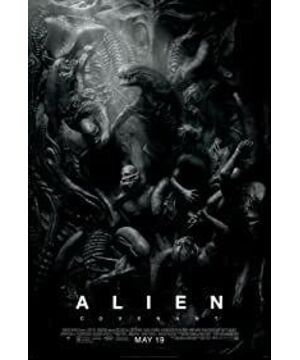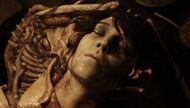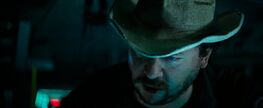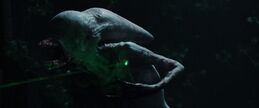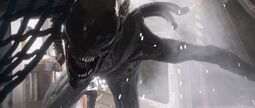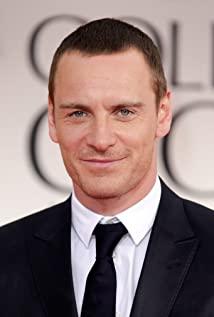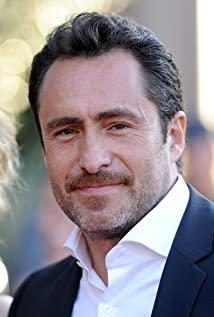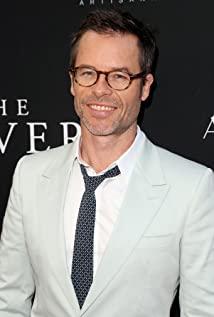When I watched Prometheus, it was purely for the sake of sucking sharks. In addition, I didn't take a religious course at that time, and I didn't think deeply about it. I didn't have a deep understanding of the "religious meaning" in the mouths of others.
After reading this, I kept thinking back to a question that the teacher said when I went to the religious studies course. "God created everything, but who created God?" I remember three answers to this question. Philosophically speaking, the answer is that the question itself is illogical and therefore non-existent, just as we can never answer "how do humans hatch from eggs" because humans don't hatch from eggs. That is to say, the form of the Creator is not something that can be speculated by the creator.
Human beings have been searching for the origin of all things from the very beginning to the present. Aristotle once proposed the concept of a creator. At that time, people's cognition was limited to seeing a tree, and tracing back its root to a seed, and the root of a seed to a tree, then why is a man a man, a tree is a tree, Zhou Shuren is not a tree, and a tree man is not a man? So it can only be inferred that there is providence, which is the unmoved mover/ prime mover, which is translated into the creator in Chinese (in fact, the translation is ambiguous).
Aristotle's thinking boils down to the fact that everything came from something, and everything has a source.
Later, human beings had natural science, evolution theory, and the big bang of the universe. A new theory has emerged, everything came from nothing. The beginning of everything is nothingness, there is no source, there is no creator, it is the Big Bang that created everything we know. But the idea of natural science makes people seem so unique. Although we have wisdom that other creatures on the earth do not have, we are like other creatures. Our existence, evolution, and the current stage are all infinite probabilities. superimposed. Weyland rejects this explanation, not believing that "human is a random by-product of molecular circumstances."
When David was created, everything in the room had hints of religion. Welland said to David, I'm your father, and then when David asked him again: Am I really your son? He replied that you are my creation. In this back-and-forth conversation, it was clear that Wayland had put himself in the position of God. However, the real creator itself is not creation. So in the Bible, when human beings asked God, God's answer was I am...I am. The first mistake Welland made was to try to put himself on the altar in front of David . (In fact, in almost all Western movies, a human or non-God god puts himself in the position of a god and despises others is doomed to fail, such as DC's luthor, Marvel's loki)
Another fatal mistake Wayland made was when David asked him, you created me and who created you, he said that I don't believe in atheism (everything came from nothing), while expressing his love for mankind The quest of the creator. Welland's reply to David's words has a subtle logical relationship, because the creator cannot be created, so David's creator, Welland, is equivalent to indirectly admitting that he is only the creator, not the creator, after all, he has The creator, and he doesn't even know what kind of creator. (This is still the logic in religion, all the creations of the creator are the creations of his creator, and cannot be called his own creations)
David said let me think for a moment, you are trying to find your creator (the doubts of mankind from the beginning), and I look at my creator (David does not exist such unknowns and doubts), I serve you, but you are Human, you will die, I will not. Use our common saying to translate the logic of David's words: I am better than you in everything, and I have to serve you. Am I lacking in heart? The conclusion of all this is that human beings are far from David's perfection, and the "divineness" that Wayland tried to establish since David opened his eyes has disappeared. It also laid the fuse for David's self-awareness awakening. (Of course, David's ultimate rebellion must also be attributed to the rejection of human beings to make him think for himself)
Let's talk about David. David felt that he was perfect and more qualified to be a creator than Welland, because he felt that immortality gave him one of the qualities of a creator, eternity. Here we have to return to the question of "who created God". The answer to this question from the perspective of religion is that God is eternal, immortal, and transcends the existence of time and space known by human beings, so God is not created. , God is always there. But David also made the same mistake as Wayland. As a created existence, he is not qualified to go to the altar. Although he is immortal, he is alive, not eternity.
Based on the above analysis, I have a guess for the story between Elizabeth and David, as well as David and Alien. Whether Elizabeth sacrificed voluntarily or not is hard to say, but David, as an infertile robot and unable to directly create life like a real god, created life in a pattern very similar to the birth of the Son of God. Elizabeth is his Virgin Mary, and the heroine of this part is also his Virgin Mary. That's why he kisses the heroine forcefully. When he said the last words to the heroine, I even suspected that he was treating the Alien as his and Elizabeth's child. Simply creepy.
In the end, Walter is so right that a single note can ruin a movement. David was not the perfect being he thought he was because he was too human. Human emotion is the biggest flaw and limitation of human beings, not life span. For example, the later alien called newborn, the biggest shortcoming is Lao Te's pursuit of maternal love. So according to the logic of the director's "don't try to challenge the only creator in the world, don't even think about it, or you will play sooner or later", I have a bold guess: David will eventually die at the hands of aliens. "False gods" are all about to die, and nothing is more ironic than dying at the hands of one's own "creation".
View more about Alien: Covenant reviews


